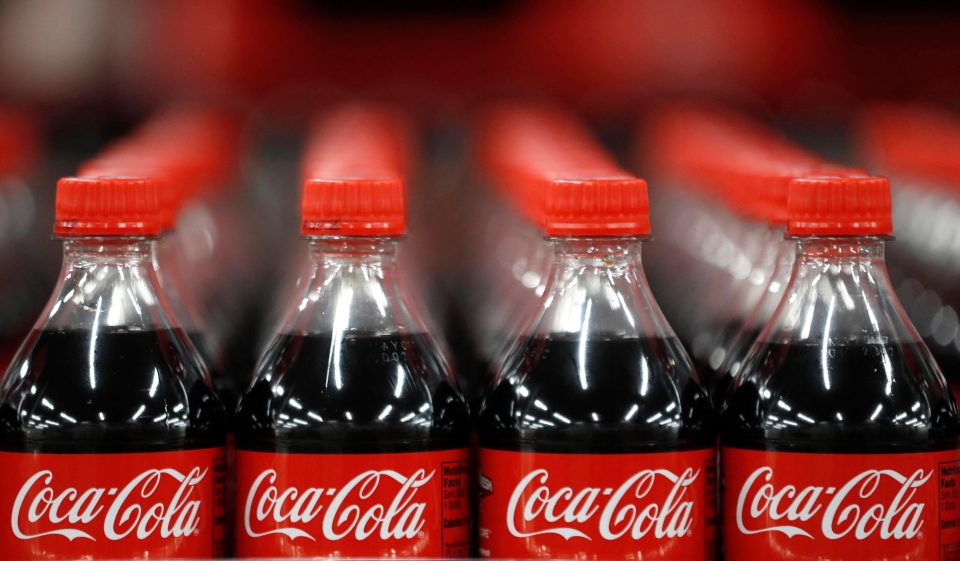Coca-Cola ‘fighting secret battle against sugar tax’ by meeting with ministers and funding health studies, according to leaked emails detailed on new documentary

LEAKED emails from Coca-Cola have revealed the secret battle it is fighting against the incoming sugar tax.
A new Channel 4 documentary lifts the lid on the close ties Coca-Cola has with influential scientists and the private meetings held with key ministers.
Dispatchers has obtained hundreds of emails known as the Coke Files between the drinks company and academics around the globe, showing the close ties it has with influential scientists.
One of the scientists featured on the show is Imperial College’s Alan Boobis, a food safety expert.
Dispatchers claim he was paid €1,000 (£866) a day by Coca-Cola to speak at an event.
The show also claims Boobis asked Coke to fund a conference he was involved in, for which Coke offered $10,000 (£7,940).
Boobis said that payments were due to his knowledge in the area and his views and content of his speeches were his own, with no influence from Coca-Cola.
The new tax is predicted to increase the price of a litre bottle of Coke by 24p when it comes into effect in 2018.
Dispatchers alleged private meetings were set up between the firm and Tory Treasury Secretary David Gauke and civil servant Sir Jeremy Heywood as part of their lobbying.
MOST READ IN LIVING
And a leaked internal email from a Senior American Coke Executive showed the company boasting of Tory support of their battle against the sugar tax.
It read: “A campaign is underway to build a case against the tax with some promising support among Conservative Party members…Options to broaden the affected categories are being discussed if the tax cannot be defeated.”
In a statement, Coca-Cola denied claims that it is preparing a legal challenge to the sugary drinks tax.
They said: “We don’t believe the UK Government’s soft drinks tax is an effective way to address obesity.
“We have made this view clear both in public and in private but we have never prepared legal action.”
The documentary also reveals studies that have been funded by Coca-Cola, which are claimed to divert the blame for obesity away from sugar.
Instead, the studies claim obesity can be linked to too much screen time, lack of sleep and exercise.
Authors of the obesity study, which was published last year by Bath University, admit Coca-Cola paid for the test.
However the University said: “The study was overseen by an External Advisory Board of international academics… at arm’s length to assess the progress, rigour and objectivity of the study.
“The funder had no role in study design, data collection and analysis, decision to publish, or preparation of the manuscript.”
Leaked emails between Coca-Cola and scientists showed the drinks company selecting the countries involved.
One email in May 2012 read: “looking to add Russia as well…this country is getting fatter… How much for Thailand and Russia--estimate only.”
We don’t believe the UK Government’s soft drinks tax is an effective way to address obesity.
Statement from Coca-Cola
We have made this view clear both in public and in private but we have never prepared legal action
Liverpool University’s Professor Simon Capewell said the correspondence showed “clear evidence of Coca-Cola being involved in the development and design of the study”.
Chancellor Philip Hammond confirmed details of the previously-announced sugar tax in his budget statement, saying money raised would go to the Department for Education (DfE) for School sports.
Health experts welcomed the “bold” move, with the Royal College of Paediatrics and Child Health, adding it “is a real victory for child health”.
Coca Cola: The facts
Coke makes so many different beverages that if you drank one per day, it would take you more than nine years to try them all.
If all the Coke bottles in the world were laid end to end, they would the reach moon and back more than 1,677 times.
Speaking of which, in 1985, Coke became the first soft drink ever in space.
When Coca-Cola first launched, it was marketed as a nerve tonic that “relieves exhaustion”.
Coca-Cola claims its name is the second-most-understood word in the world, behind “OK.”
Mexicans are the biggest drinkers of Coke in the world, while Cuba and North Korea are the only two countries where the product isn’t sold.
Of the 57 billion servings of all kinds of beverages drank each day – other than water – 1.9 billion are drinks trademarked or licensed by Coca-Cola making it the most widely distributed product on the planet.
Dr Mark Porter, chair of the BMA, said: “This is a welcome and crucial move.
“With one in five children starting primary school overweight, this is a vital step forward.”
Coca-Cola monopolises half of the global soft drinks market, and the A standard can of regular Coke, currently costing around 70p, will be slapped with a 8p increase while the same amount of Sprite (6.6g per 100ml) would go up by 6p.
We covered exactly what is in a Coca-Cola recipe, how much sugar is in a can of Coke and how the sugar tax affect the price of a bottle.
We also shared a grim experiment that will make you think twice about drinking Coca Cola ever again.
Dispatches: Secrets of Coca-Cola is on Monday 27 March at 8pm on Channel 4









